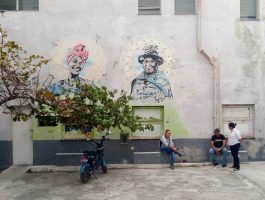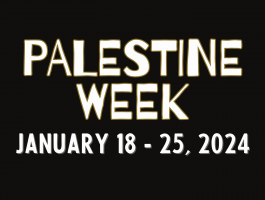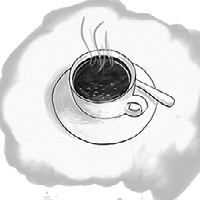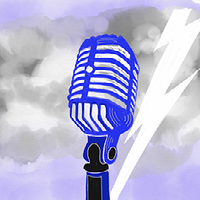“This is the most important election of our lifetime.”
Those words seem to echo in every election, including 2012. Four years ago, we saw a historic election with high voter participation—when many of those voters knew that their choice would elect the first African-American to the White House. Today, enthusiasm is understandably lower, as the United States continues to recover from a bad economy, and racial justice still seems like a far off goal that certainly won’t be fixed with one presidential election. According to a recent Gallup poll, voter turnout will pale in comparison to the two previous elections.
In the months ahead of Election Day, we’ve written here about dubious voter purges, cut offs to early voting, voter intimidation and more. Groups like True the Vote and their tactics may serve only to disenfranchise certain voters. The fact that so much has been invested to suppress peoples’ right to vote—particularly after the election of the country’s first black president—should indicate voting remains a threat, because those votes can destabilize the way power has traditionally been held.
Voting rights still matter as much as the act of voting itself. Aside from the long history that guaranteed suffrage for all adult citizens, casting a ballot does make a difference to our future. This is especially true in a country where demographic shifts will inevitably have to be reflected in domestic policy.
The upcoming presidential race may determine the future makeup of the Supreme Court, and congressional races will mark whether cooperation or filibustering will define the next four years. And state and local races will determine issues much closer to home.
Some states, like California, use ballot measures so that voters can weigh in on everything from GMO labeling to the death penalty. Our Los Angeles based community journalist Maegan E. Ortiz writes in this week about why voting might be a matter of life and death in California.
—Aura Bogado
Why Voting Is Critical for People of Color Communities
It’s sometimes hard to argue why getting to the polls on November 6 is critical in a non-swing state like California. The blue state is often used more like an ATM than for actual campaigning by both parties in federal elections. There is little talk of voter suppression with California seeing a record number of voter registrations. But registering and actually voting are two different things. The statewide primary elections in June yielded a disappointing turnout, especially among communities of color.
Perhaps some history is in order. Access to the vote for people of color communities was hard fought in California. Its first constitution—created in 1849, shortly after the conclusion of the Mexican-American War and a year before California attained statehood—limited suffrage to white male citizens of the United States and white male citizens of Mexico who had elected to become US citizens under the treaty ending the war. In addition, the state’s constitution gave the legislature the option of extending a “special” franchise to Native Americans, who were not generally considered to be US citizens at the time. Citizenship statutes were added in the 1879 state constitution in conjunction with nativist anti-Chinese provisions. While those anti-Chinese provisions are gone, the citizenship statutes remain, leaving even local school board elections inaccessible for many families in the state.
Most efforts to animate voters of color now in the Golden State are not based on a historical imperative to vote but rather are focused on the eleven statewide ballot propositions that should be seen as equally important as the race between Mitt Romney and Barack Obama. One especially contentious measure is Proposition 34, which seeks to repeal the death penalty and replace it with life without the possibility of parole. Some crime victim organizations have come out strongly against the measure, saying it denies justice for loved ones. But much of the narrative focuses on stereotypical portrayals of who is a criminal and who is a victim.
Deldelp Medina, Northern California coordinator for California Crime Victims for Alternatives to the Death Penalty, is not in favor of getting rid of the death penalty just because of wrongful convictions like that of Franky Carrillo. Wrongly convicted of murder at age 16 and served twenty years before having his case reversed, Carrillo’s story is featured prominently in pro Prop 34 ads.* Medina isn’t just concerned over the $4 billion spent on the death penalty since 1978 and the approximately $1 billion that will additionally be spent in the next five years if the death penalty remains law in the cash-strapped state. She, like many family members of crime victims who are against repealing the death penalty, wants justice for her community.
“I think that when you come from Latin America, a place where many are used to corruption winning, to the United States, you think that here you get your voice and your vote, that this is a fair system. Our communities learn the hard way that power corrupts and that justice is just as unequal as anywhere else,” Medina said.
She is not just referring to the fact that Franky Carillo’s father, his alibi, was dismissed as a witness because he couldn’t speak English. She’s referring to personal experience. Eight years ago, Medina’s aunt was murdered by her only son while he was in the midst of a schizophrenic break. While the family spiraled through multiple emotions, they had to plan a funeral and mount a defense, especially when the district attorney decided to pursue the death penalty for her cousin.
Medina’s experience puts her in an unenviable position. She can understand the pain and frustration with the criminal justice system from both sides. Medina points to the fact that 46 percent of murders go unsolved in California each year. Fifty-six percent of reported rapes are unsolved each year, a number she hopes will go down if Prop 34 passes thanks to the $100 million over three years that will be placed in a “SAFE California Fund” to help local law enforcement solve more murder and rape cases. If Prop 34 passes, SAFE California Fund will be disbursed by the Attorney General to police departments, sheriffs and district attorney offices.
Medina feels the media fiction portraying criminal perpetrator versus victim is dangerous. “There is no talk about black women being killed, about intra-family violence. We need to have conversations about this and Proposition 34 can start that, allowing people, families to heal because I don’t want any other families to go through what we did.”
And families of color are really at the core of why those who can vote in California should. Another important proposition asks for taxes for a public school system that has seen massive cuts. California is educating a Latino student population that is up from 25.8 percent in 1981 to 51.4 percent in 2010 and the largest Asian-American student population in the country. Perhaps some of those students are descendents of those purposely prevented from voting when California was a newborn state.
Beyond California, there are a number of significant congressional races, reflecting changing demographics in new and redrawn districts. These races may mean that the 113th Congress is more representative of the United States of today. Local races from school board to city council may contain the future leaders of the country. Just when you think your vote doesn’t matter, looking deeper, thinking beyond the presidency and into our communities may change your mind. Voting may not solve every problem, but think about it as just one tool, hard fought over, with which to create the communities we all deserve.
—Maegan E. Ortiz
Published in The Nation
November 1, 2012




